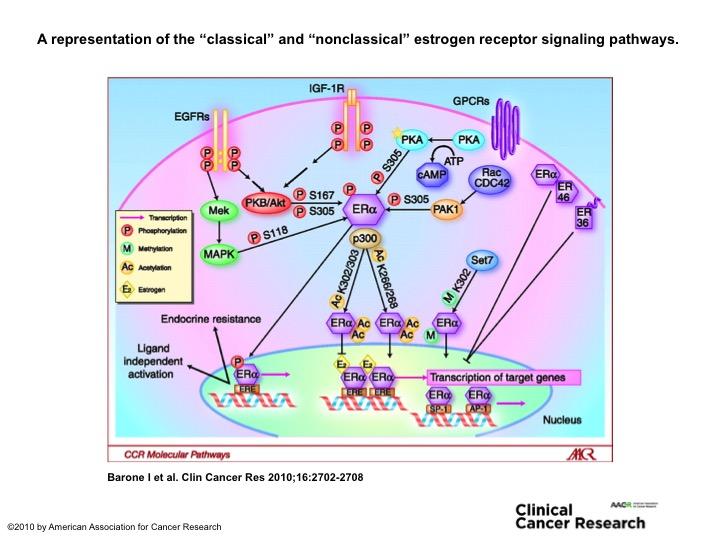About Us

The main goal of the Fuqua Lab's research is to determine the role of specific somatic mutations in estrogen receptor alpha, called K303R and Y537N ERa, in the clinical problem of hormone resistance. Dr. Fuqua was the first to discover alternatively spliced transcriptional isoforms and somatic mutations in breast tumors. Recently mutations in ER have been rediscovered by a number of laboratories the earlier seminal work.
The Fuqua laboratory has determined that the K303R mutation alters many aspects of hormone action, including binding to co-regulatory proteins, enhanced stability, estrogen hypersensitivity, response to tamoxifen, and resistance to the aromatase inhibitor anastrazole.
The Y537N mutation is a constitutionally active receptor first discovered in metastatic breast tumors, which makes the receptor a highly constitutively active receptor most probably conferring resistance to estrogen deprivation in patients.
A major goal of the laboratory is to develop novel therapeutics to target these alterations in ERa to restore hormone sensitivity, as well as identify other novel mechanisms of resistance. Current models of resistance discovered in genomic studies of breast cancer tumors which are understudy include: Rho GDIa, the androgen receptor (AR), Dicer1, breast cancer resistance protein (BCRP1), estrogen binding protein (Ebp50), and metastasis associated protein MTA2.








